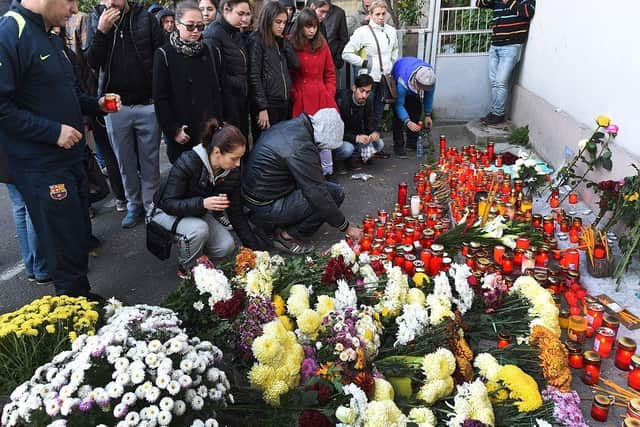War in Ukraine: Why Ukrainian corruption sounds very familiar to me - Jane Bradley
When I lived in neighbouring Romania 20 years ago, corruption was everywhere. A simple visit to the doctor required the “mita” (bribe) envelope, stuffed with cash – or at the very least, a bottle of wine, or packet of coffee.
Parents of a small percentage of students in the classes I taught at a state-run academically selective school were widely accepted to have paid a sweetener to get a place.
Advertisement
Hide AdAdvertisement
Hide AdA colleague once expressed her incredulity when I returned from a few hours queuing at the local immigration office, to have my residents’ permit verified. Why, she asked me, had I waited so long, when I could have just paid a bribe and skipped the queue?


As recently as 2016, a doctor was jailed after it was found he was receiving ten bribes a minute – often in return for medical certificates allowing people to retire. Yet now, Romania – a member of the European Union since 2007 – has smartened up its act dramatically.
Transparency International now ranks it as the 66th least corrupt in the world – a huge change from 2002, when the organisation, albeit working on a different scoring system, named it as one of the worst. Ukraine, by comparison, now stands at number 122.
The widespread corruption that was endemic in Romanian society came to a head in 2015 when 64 young people were killed in a nightclub fire in the capital Bucharest. An investigation that followed found not only had the deaths occurred due to a system that had allowed the nightclub to pay off local officials rather than ensure the venue was fire safe, but that many of those injured later died due to corruption in the healthcare system.
The nightclub tragedy sparked widespread anti-corruption protests across the country and those, coupled with more demonstrations two years later, eventually saw a raft of controversial amendments to the Penal Code repealed and an anti-corruption drive begin.
Now corruption is undoubtedly on the decline. It is not perfect, but it is undoubtedly better. If Romania can do it, so can Ukraine.
Comments
Want to join the conversation? Please or to comment on this article.